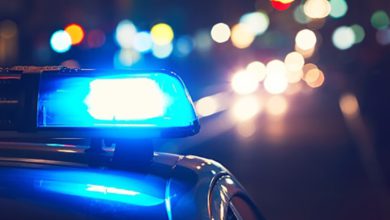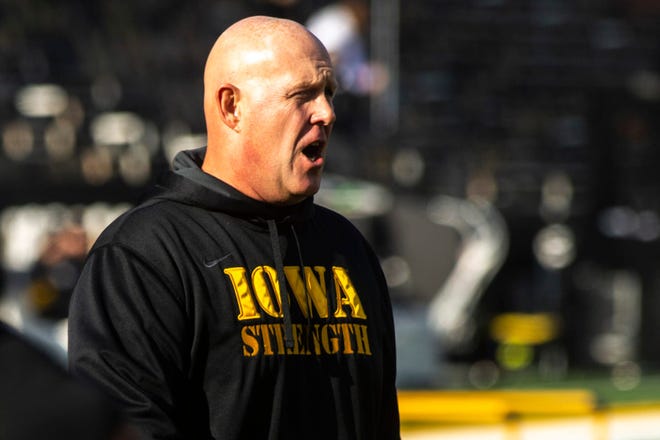- 1,000 of the 62,000 registered voters in Georgia’s Glynn County received jury summons for the trial of three men charged with killing Ahmaud Arbery last February.
- Judge Timothy Walmsley has barred the media from releasing identifying information about jurors and repeatedly assured jurors the court is working to maintain their anonymity.
- One potential juror told the court this week: "Any verdict, guilty or innocent, is going to be unpopular with some people. Maybe I’d even feel unsafe, I don’t know."
BRUNSWICK, Ga. — Would-be jurors in the murder trial of the three men charged with killing 25-year-old Ahmaud Arbery expressed concerns this week about remaining anonymous should they be selected to serve – particularly given the size of the community and intense public interest in the high-profile trial.
A thousand of the 62,000 registered voters in Glynn County received jury summons. The judge hopes to narrow the jury pool to a smaller group of 64 and eventually to 16 people: 12 jurors and four alternates.
Complicating that process is the fact thatmultiple prospective jurors have told the court they know Arbery, the defendants, potential witnesses, other prospective jurors and some of the local figures involved in the case. Some worried they would be identified as a juror in the press and feared they would face personal repercussions after rendering a verdict.
"I don’t want to have to relocate because of something that goes wrong," one prospective juror said Monday.
A 'lynching' or self-defense: 3 Georgia men go on trial in the 2020 murder of Ahmaud Arbery
Under questioning by lawyers for the defendants, another prospective juror expressed similar concerns: "Any verdict, guilty or innocent, is going to be unpopular with some people," she said. "Maybe I’d even feel unsafe, I don’t know."
One juror told the court she was concerned about "making sure my name is out of the news."
"It’s a small enough town," another prospective juror told lawyers for the defendants Thursday. "I think it would be naïve to think there couldn’t be real-world repercussions."

Judge Timothy Walmsley has barred the media from releasing identifying information about jurors and repeatedly assured jurors the court is working to maintain their anonymity.
Anonymous juries are rare. But due to social media, the ease of internet searches, and concerns over juror safety, the practice could become more common – a shift some legal scholars say could jeopardize transparency and the need for more diverse juries.
Brunswick is predominantly Black but sits in the overwhelmingly white Glynn County. Given the racial dynamics at play in the case, the demographic makeup of the jury is being closely watched.
Arbery, who was Black, was fatally shot in February of last year while out jogging in the Satilla Shores neighborhood of Brunswick. Three white men – Greg McMichael, 65, his son Travis, 35, and their neighbor William "Roddie" Bryan, 52 – stand accused of his murder.
The death of Ahmaud Arbery: What happened and when
The defendants' connections in the small community have complicated the case from the outset. The first prosecutor assigned to the proceedings, Brunswick District Attorney Jackie Johnson, had to recuse herself because Greg McMichael previously worked as an investigator for her office and as a Glynn County police officer. She has since been indicted for misconduct in the case.
The next prosecutor, Waycross Judicial Circuit District Attorney George Barnhill, also had to recuse himself because he was recommended by Johnson, who failed to disclose she asked him to advise police on Arbery’s death.
In court late Wednesday, Kevin Gough, Bryan's defense attorney, called Brunswick a "fishbowl" where everybody knows everybody. He even appeared to recognize one of the jurors.

The first week of jury selection was a local affair as a cast of characters paraded through the court: A baker, a teacher, a security guard, a housekeeper, a crane operator, a hair stylist, a server.
Most said they knew at least one person involved in the case, including the defendants, their partners and attorneys. One said they knew someone from a local Rotary Club. Two said a witness used to cut their hair. One said they knew a defendant's neighbor.
"My coworkers are best friends with Roddie's wife, we discuss this case all the time," one juror wrote on a questionnaire.
One juror said a defendant is "a friend of my father’s and he’s been over to our house multiple times."
One prospective juror Thursday said he has known all three defendants "for years." He said he and the McMichaels have been part of the same hunting club for two decades.
"I just feel like I know them too good," he told prosecutor Linda Dunikoski. "I want to be honest."
From our editor, to your inbox: Editor-in-chief Nicole Carroll takes you behind the scenes of the newsroom in this weekly newsletter
Multiple prospective jurors also knew Arbery. One went to school with him. Another went to school with his parents. And one said his son played football with Arbery.
Many jurors recognized each other in the courtroom, too. One woman said she knew six other jurors, including her son, a former student and current and former coworkers.
Despite their various degrees of familiarity with the case and those involved, some would-be jurors said they could remain neutral if they were seated on the panel.
One potential juror Thursday afternoon told the court she has known one of the defendants for 30 years. When asked by the judge if she could remain neutral, the woman said "yes."
It was not immediately clear if she would move on to the next round of the process.
Jury selection will resume Monday morning.
Source link









